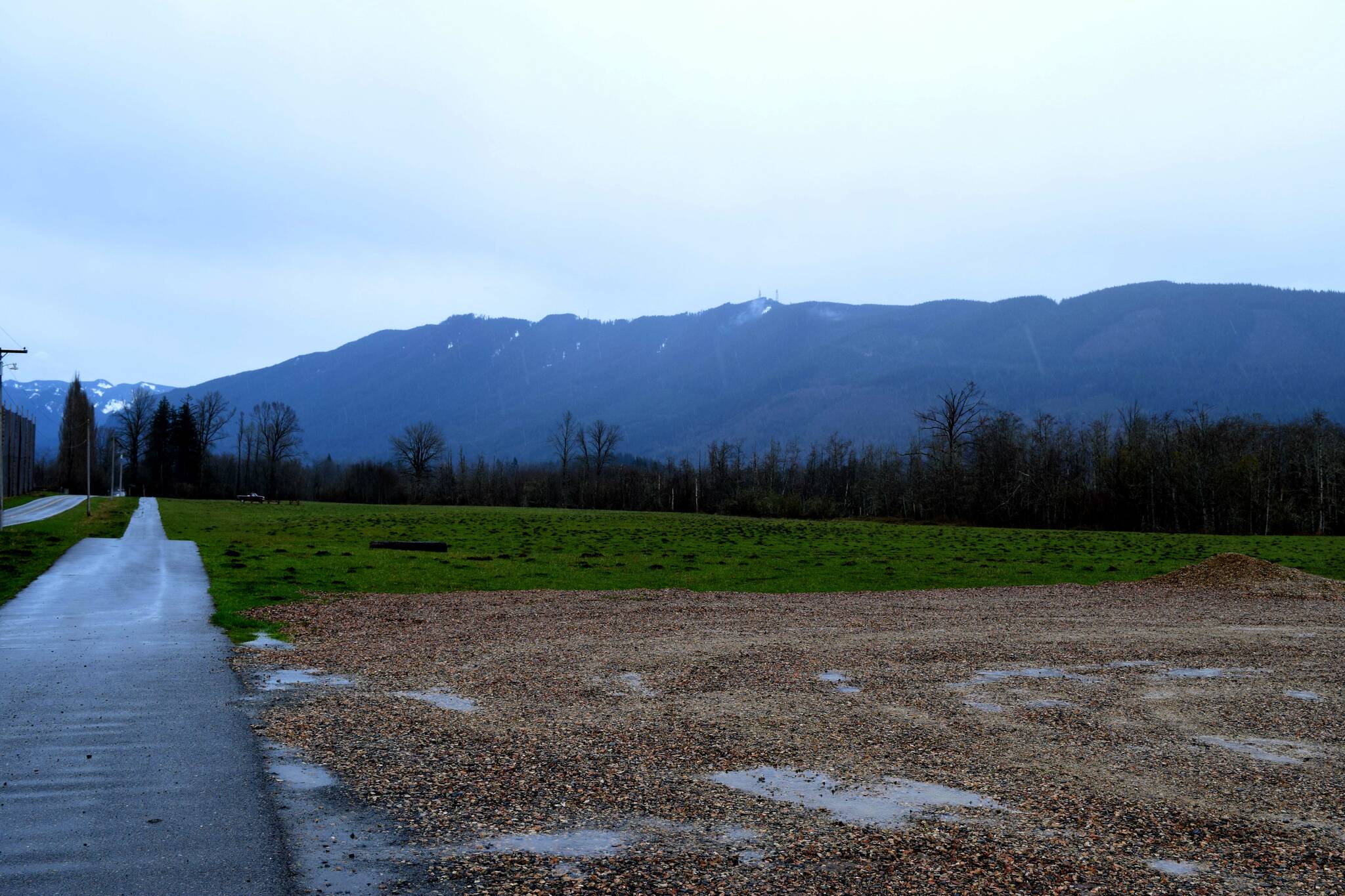Situated on the dividing line between Snoqualmie and North Bend, the Meadowbrook Farm prairie is renowned for its landscapes and the herds of elk often visible in its fields.
There is a reason why so many people are drawn to it, said Christopher Castleberry, a Snoqualmie Tribal Council Member. For the Tribe, he said, the Meadowbrook prairie is a sacred site — and there is a desire to preserve it.
Soon the Tribe could have more authority to do that.
After more than two decades, a land management agreement between the cities of Snoqualmie and North Bend will expire later this year. With a replacement in the works, tribal members have requested they be included as a third member of the farm’s governing body.
“It’s a special place to us,” Castleberry said of the prairie. “We want to make sure, as the stewards of this land, that our voice is heard.”
While the 460-acre Meadowbrook Farm property is mostly used for recreation today, it was maintained by tribal members as a hunting and gathering space for thousands of years prior to the arrival of white settlers in the late 1800s. Over the last century, the land has primarily been used for agriculture, including as a large hop farm.
During the 1990s, the prairie’s owners put the land up for sale. And following a push from residents to preserve it as open space, the cities of Snoqualmie and North Bend spent nearly two years buying it up parcel by parcel.
Once finished, Snoqualmie and North Bend signed the Meadowbrook Farm Interlocal Agreement in 1998, a 25-year-long deal outlining how the land would be managed, and establishing the two cities as the land’s governing body.
Due to several factors, including not being a federally recognized Tribe at the time, the original deal did not include the Snoqualmie Tribe as a governing member. But with a replacement on the way, the Tribe’s leaders are requesting to join Snoqualmie and North Bend as an equal partner. The change would not make the Tribe a co-owner of the land, but would give them more say in decisions about how the land is managed.
Currently, the Tribe only has board-level authority over the Meadowbrook prairie, as part of its inclusion on the Meadowbrook Farm Preservation Association. The nonprofit is a board-run group of city officials, other stakeholders and residents created under the 1998 agreement that manages the farm. The Snoqualmie Valley Historical Society, Si View Parks District and conservation nonprofit Mountains to Sound Greenway also have seats on the board.
While governing bodies have authority over approving plans, budgets and funding , the preservation association is tasked with overseeing those plans and day-to-day operations.
Being a board member, rather than a governing partner, has been a “major challenge” for the Tribe, said Jaime Martin, director of government affairs for the Snoqualmie Tribe. Martin said the Tribe would like to see changes in how the prairie is managed, including more aggressive efforts to eliminate invasive species, reintroduce traditional land management strategies and restore indigenous foods and plants, like camas.
Over the past few decades, Martin said the Tribe has been concerned about the prairie’s management, noting it has often promoted revenue sourcing over restoration efforts to offset maintenance costs. She points to the Meadowbrook Farm Master Plan as an example, saying the documents offered little to address native plant restoration.
“We’re hopeful that with the Tribe at the table, there’ll be a better balance for making sure those restoration goals are really upheld,” she said.
According to city documents, the cities are requesting the Tribe commit to an equal one-third share of the annual maintenance and management cost as part of its inclusion. The Tribe has also proposed providing additional funds that would focus solely on restoration efforts.
Costs for all partners are expected to rise under a new agreement. Due to regional growth and an increase in public usage, managing the farm has exceeded the capacity of the volunteer preservation association and will likely be turned over to the parks district for maintenance, according to city documents.
Snoqualmie Mayor Katherine Ross said the city looks forward to continuing discussions with the Snoqualmie Tribe and North Bend about a potential partnership.
“Our primary focus for the management collaboration continues to be one of environmental stewardship, preservation and education,” Ross wrote in an email. “Along with a small revenue component to cover maintenance, operating and capital costs of the farm.”
North Bend Mayor Rob McFarland shared a similar sentiment.
“We are excited about the potential to partner with the Snoqualmie Tribe on managing this unique and special open space,” he said in an email. “We have had good discussions with Tribal council representatives and those conversations continue.”
Castleberry said working through a new agreement hasn’t been easy, but they are hopeful a deal can be reached.
“Our relationship is much different than it has been in the past,” he said. “So I remain hopeful that we can figure something out for the betterment of the prairie.”


